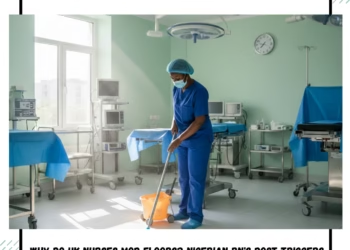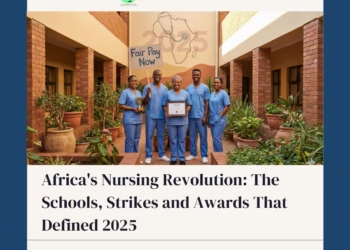In most healthcare conversations, doctors dominate the headlines. But quietly, and often without recognition, nurses carry the weight of healthcare delivery. From primary care clinics in rural communities to advanced procedures in intensive care units, nurses are not just support staff—they are highly skilled professionals whose expertise can determine life or death outcomes.
Yet one area remains underdeveloped across much of Africa: advanced nursing specialties.
Why Specialization Matters
Globally, nursing has evolved far beyond bedside care. Today, nurses specialize in fields such as oncology, nephrology, anesthesia, critical care, public health, and even genomics. These specialties require years of additional training and carry immense responsibilities—often filling gaps where physicians are scarce.
In Africa, however, many health systems still treat nursing as a one-size-fits-all profession. This not only undervalues the skill set of nurses but also deprives patients of advanced, evidence-based care.
Imagine:
– A cancer patient without access to an oncology nurse trained to manage chemotherapy side effects.
– A critically ill patient cared for by a nurse without advanced training in mechanical ventilation.
– A mother with complex pregnancy complications receiving care from a midwife without the latest specialty skills.
The difference between survival and tragedy can hinge on the presence or absence of a specialized nurse.

The Barriers
So why is investment in advanced nursing specialties lagging?
– Limited training programs: Few universities and teaching hospitals in Africa offer postgraduate nursing specializations.
– Policy neglect: Many health policies still frame nurses as generalists rather than advanced practitioners.
– Brain drain: Those who do specialize often leave for better recognition and pay abroad.
– Cultural perceptions: In some systems, advanced nursing roles are resisted because they blur traditional doctor–nurse hierarchies.
A Way Forward
If Africa is serious about building resilient health systems, nursing specialization must be a priority. This requires:
– Investment in postgraduate nursing programs—not just in urban centers but also in regional hubs.
– Clear career pathways so specialized nurses are recognized, promoted, and retained.
– Policy reform that integrates advanced practice nurses into leadership and decision-making roles.
– Public awareness campaigns to highlight the life-saving role of specialties such as critical care, oncology, and mental health nursing.
Final Word
Every time a nurse is overlooked, a patient misses out on the full potential of care. Advanced nursing specialties are not a luxury—they are a necessity for Africa’s health future.
It is time to move beyond applause for nurses’ “resilience” and begin to invest in their expertise. Because when nurses grow, healthcare systems thrive.
Do you agree that advanced nursing specialties are undervalued in Africa? What specialty do you think should be prioritized first—oncology, critical care, or mental health?










